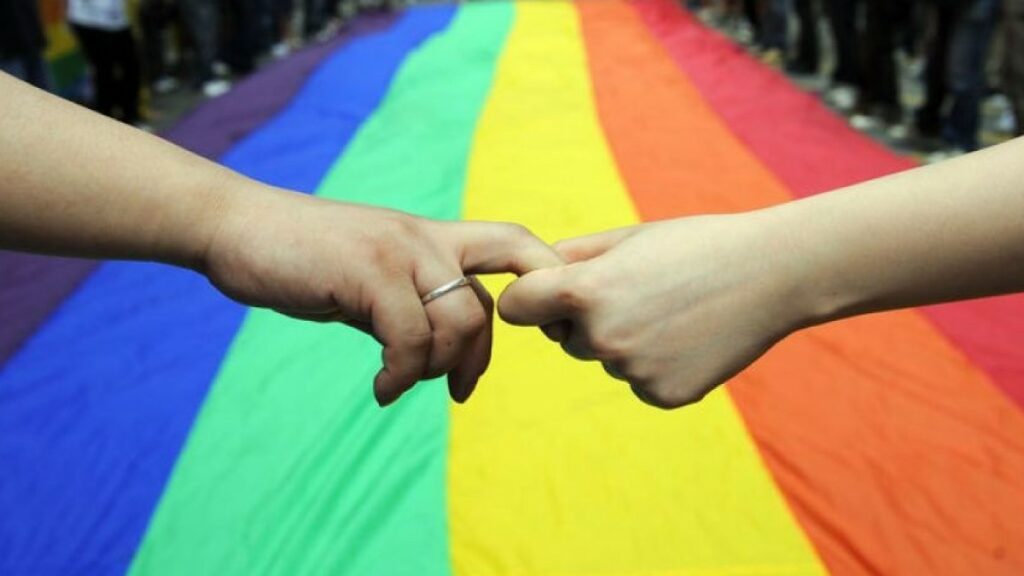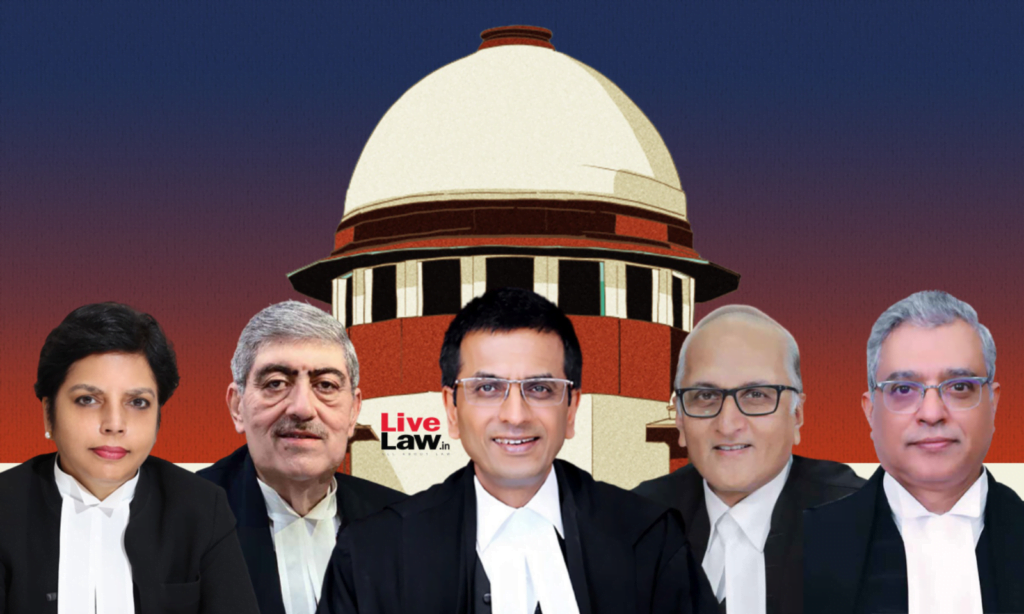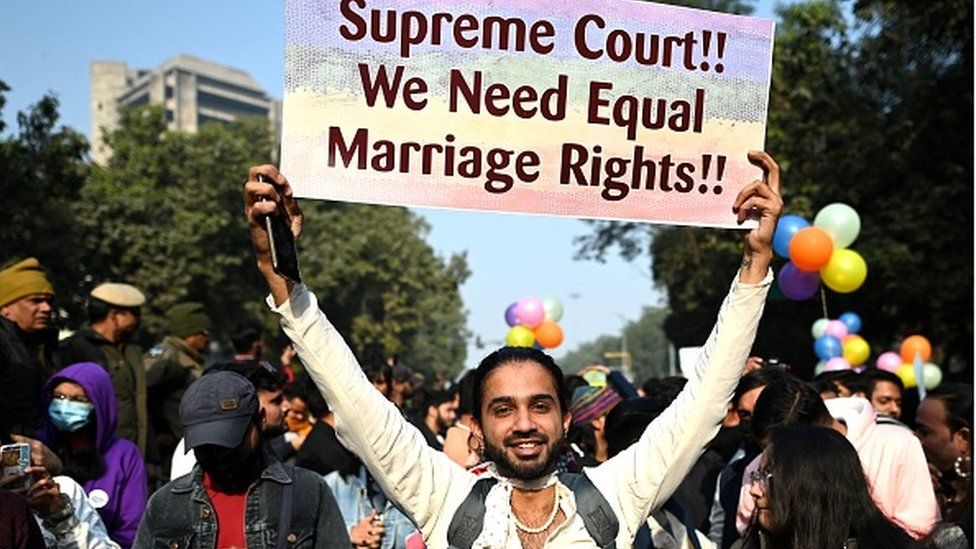Last week, the constitutional bench of the Supreme Court convened to hear a batch of petitions seeking legal recognition of marriage equality in India. The hearing brought to light the gambit of gender in the highest court of law and made it a conversation that was much ado. It reverberated with the intellectuals on both sides of the spectrum and sparked a debate on the meaning of gender, marriage equality, and civil union in modern India.
Gender, according to the CJI is “more than genitals”. “It is not the question of what your genitals are. It is far more complex, that is the point” he asserts. The complexity of gender is a conversation that the dawn of modern India craved. The rethinking of the notions of gender and looking at the fluidity of its boundaries re-assert the meaning of marriage equality and civil partnership in society.
While debating the various socio-cultural implications of legalising same-sex marriage, the Chief Justice of India, D.Y. Chandrachud orally remarked how gender is but a “notion“. He addressed the Solicitor General Tushar Mehta, appearing for the government, saying “You are making an important value judgment that the notion of a biological man and the notion of a biological woman is absolute.“
Gender, according to the CJI is “more than genitals”. “It is not the question of what your genitals are. It is far more complex, that is the point” he asserts. The complexity of gender is a conversation that the dawn of modern India craved. The rethinking of the notions of gender and looking at the fluidity of its boundaries re-assert the meaning of marriage equality and civil partnership in society.
The need for marriage equality
Marriage is a social institution that plays a role in the forming of a family in the Indian cultural system. The Indian tradition pays great importance to the act of two individuals coming together in holy matrimony and forging a family forward. But the existence of this institution is selective and patriarchal at its very core.

The two individuals are understood as the cis-heterosexual binary of a man and a woman. Heterosexual marriage is the very breeding ground of the dilemma and exclusion that a non-binary individual faces. The thought of accepting same-sex marriage demolishes the patriarchal sanctity of the institution. Language and rituals would have to scrap their hierarchical metaphors to accommodate a broad spectrum of genders.
Civil partnership
A civil partnership is a legal relationship that can be registered by two people who aren’t related to each other. While marriage is a social, religious and cultural union, civil partnership is broadly legal and designed for couples seeking dignity and tangible rights otherwise only associated with the social sanction of marriage.
The CJI Chandrachud led constitutional bench presented civil union as an option for same-sex couples that haven’t been granted social, religious, and legal acceptance. But granting them the right to civil union would be just part justice. Dr Singhavi expressed the importance of marriage equality on the second day of the hearing as, “many couples want stability and permanence of sharing a home, with or without children.“
The CJI Chandrachud led constitutional bench presented civil union as an option for same-sex couples that haven’t been granted social, religious, and legal acceptance. But granting them the right to civil union would be just part justice. Dr Singhavi expressed the importance of marriage equality on the second day of the hearing as, “many couples want stability and permanence of sharing a home, with or without children.“
The modern idea of marriage
Marriage in the last few decades has changed drastically, from colours to rituals to the idea of bearing children. The resistance to accepting the idea of marriage equality comes from the deep-seated ideology that marriage is an association of a heterosexual man and woman. Socially, the couple commands respect and can move in circles being labelled as a spouse. They are expected to bear children to take the family name forward.

The contemporary idea of marriage has not only moved away from the set gender roles but also the idea of bearing children. The Supreme Court hearing also noted that the idea of having children in traditional marriages has taken a back seat. Do we consider heterosexual married couples not bearing children illegal or improper?
The contemporary idea of marriage has not only moved away from the set gender roles but also the idea of bearing children. The Supreme Court hearing also noted that the idea of having children in traditional marriages has taken a back seat. Do we consider heterosexual married couples not bearing children illegal or improper?
The LGBTQIA+ community is only seeking their place in the social institution that legally and religiously forgot to mention them. The convenience of this patriarchal institution must be questioned and the boundaries must be made more fluid to include everyone.
The legal battle
The idea of marriage is not only an intangible collection of social acceptance, but a tangible agglomeration of legality and security. The ability to open joint bank accounts, jointly buy or rent a property, jointly buy and share financial assets, be recognised as a relative under the Income Tax Act, access a spouse’s health and life insurance, and inherit a spouse’s assets if one partner dies.

These are the perks that heterosexual couples take for granted, but same-sex couples have to strive to accomplish. In their fight for justice, many old and rotten notions were questioned and many ideas were brought to the fore.
Of gender and beyond
The CJI’s statements made clear that tomorrow cannot be built on yesterday’s idea of justice and gender. Society and law need to constantly evolve to be able to accommodate each other. Any citizen’s discrimination based on a natural choice is a society’s denial of justice.
The subject of gender needs to be re-assessed. By legalising homosexuality, India proved that its purview of justice is at par with the needs of its citizens. The insistence on granting marriage equality and the need to re-look at the stale gender boundaries is how we would want to proceed as a nation that is progressing at its soul.
About the author(s)
Dr. Guni Vats is an Assistant Professor at the Department of English, Manav Rachna International Institute of Research and Studies. A PhD in Gender Studies, she is a renowned researcher, writer, and scholar.






Much informative article in which author has touched the dynamics of marriage as an institution and rights of minorities.
Thanku
Irfan Jaffer
M.A Gender and Women Studies
( Development Practioner)